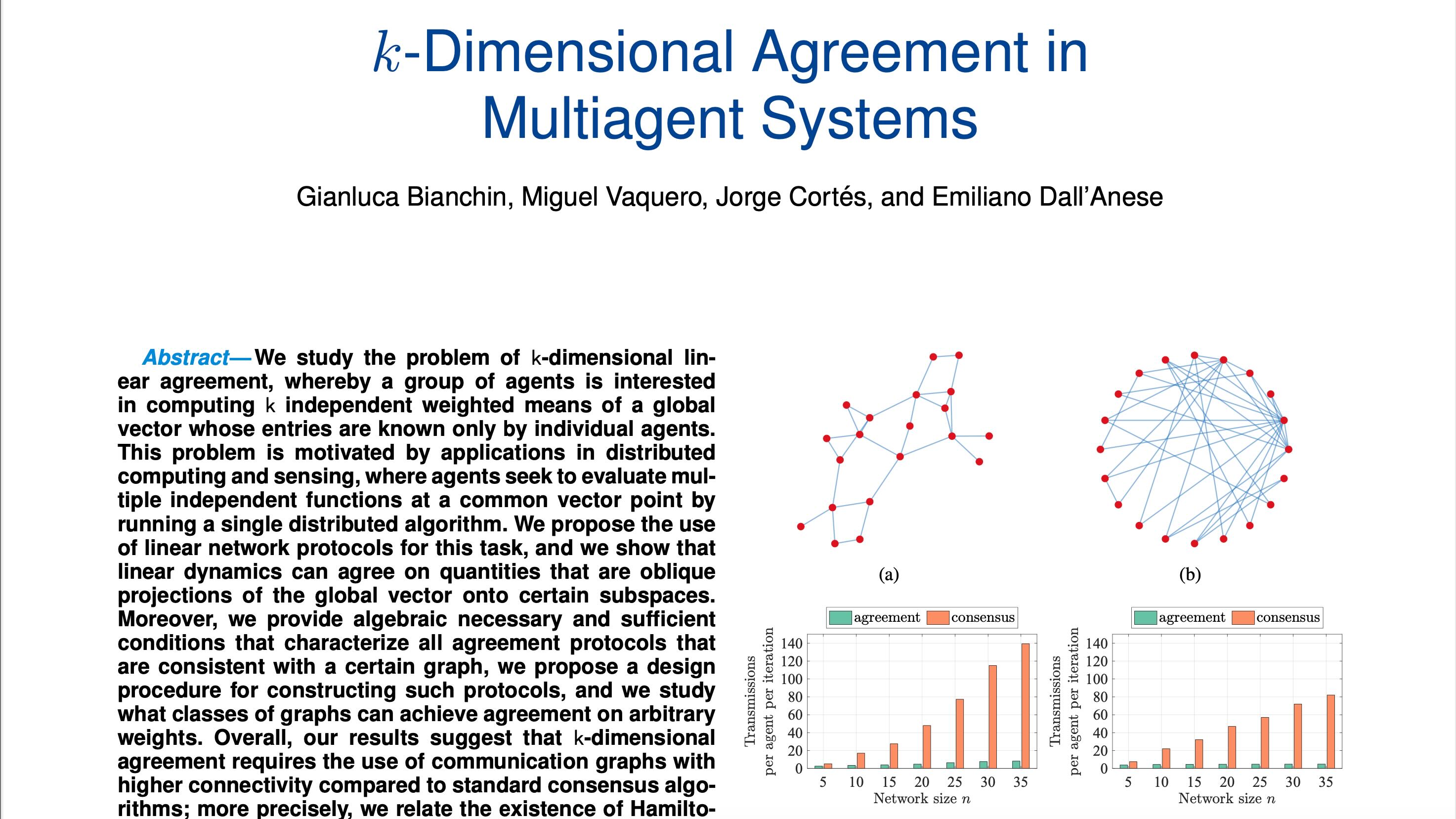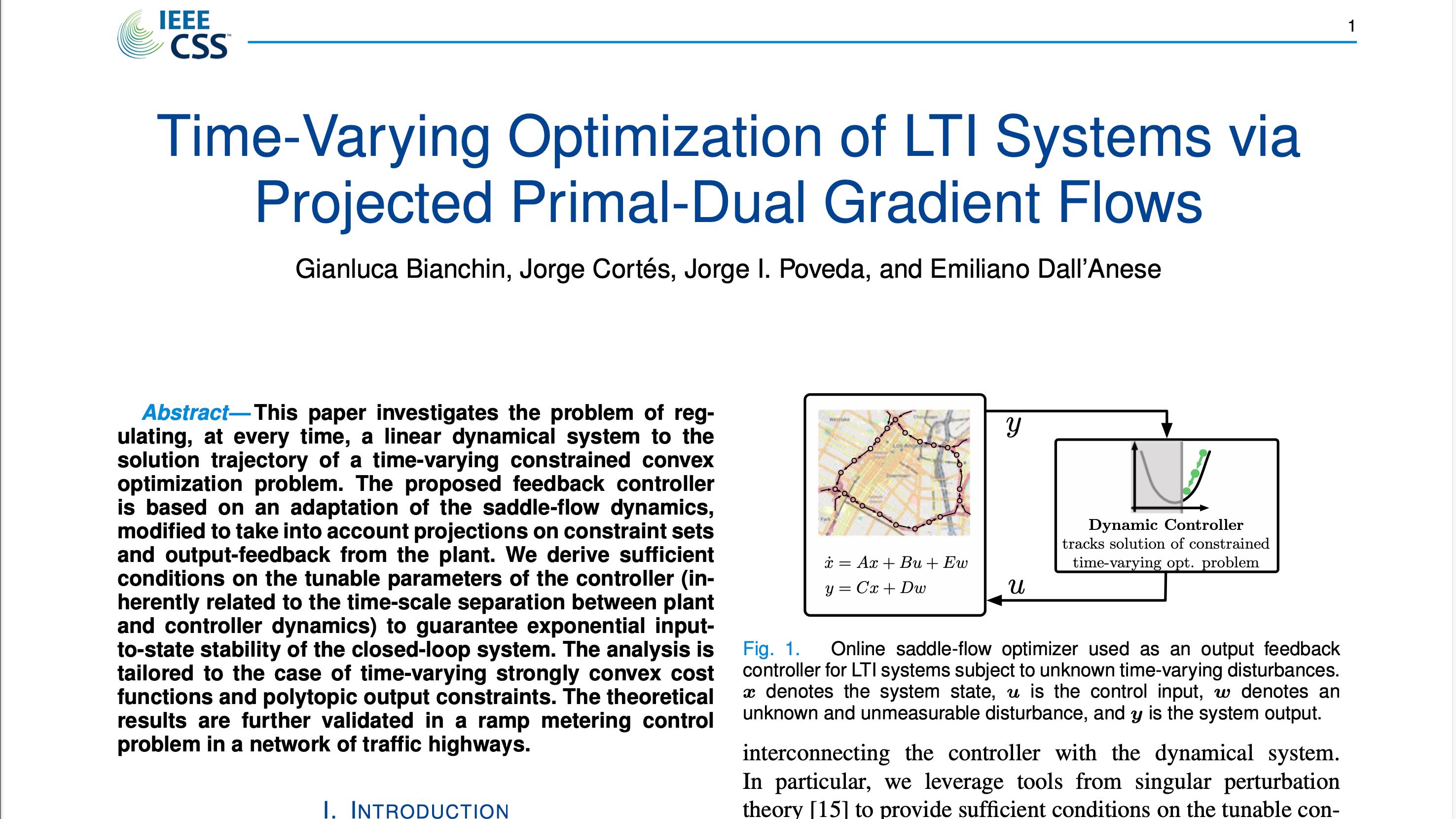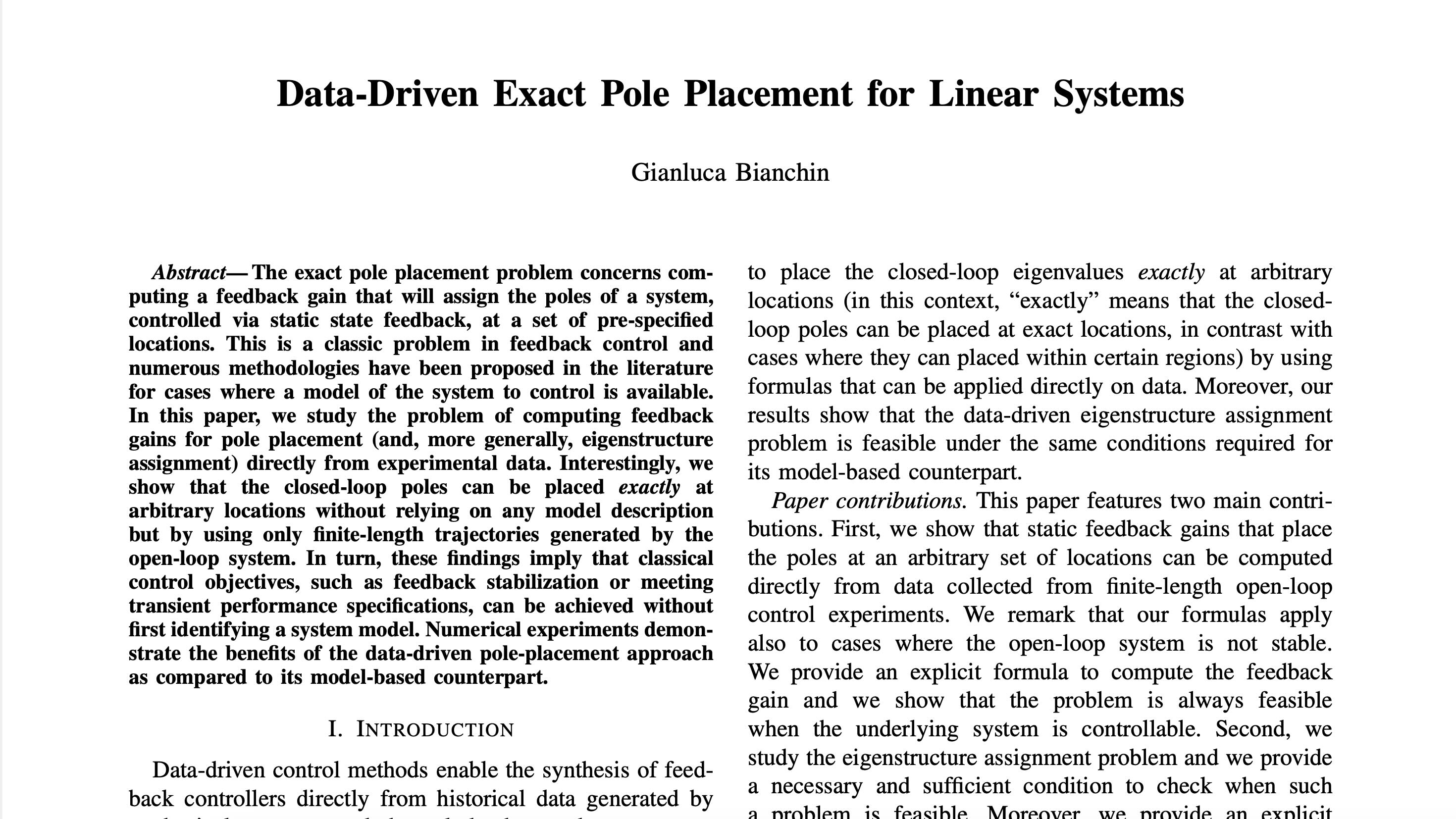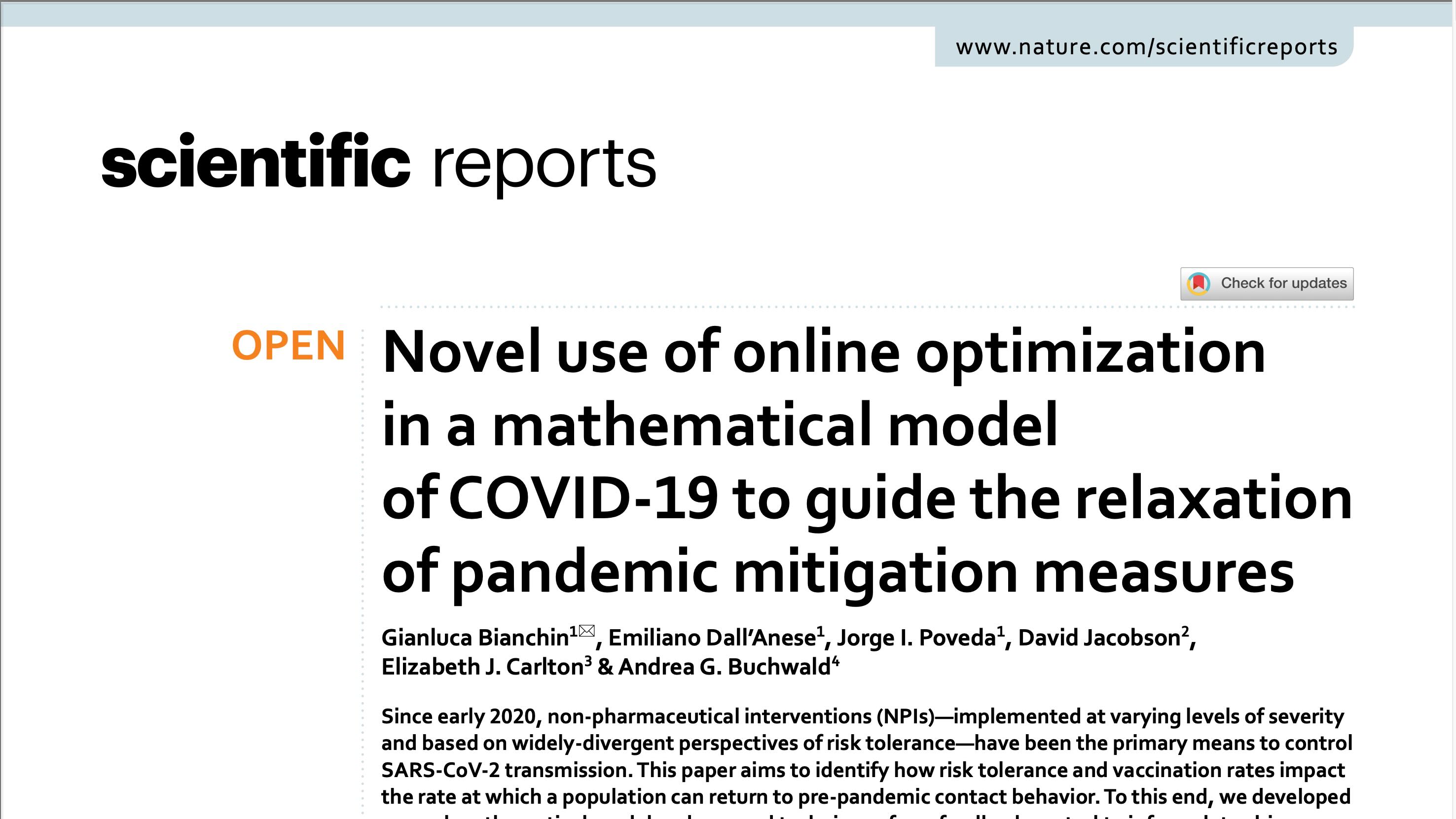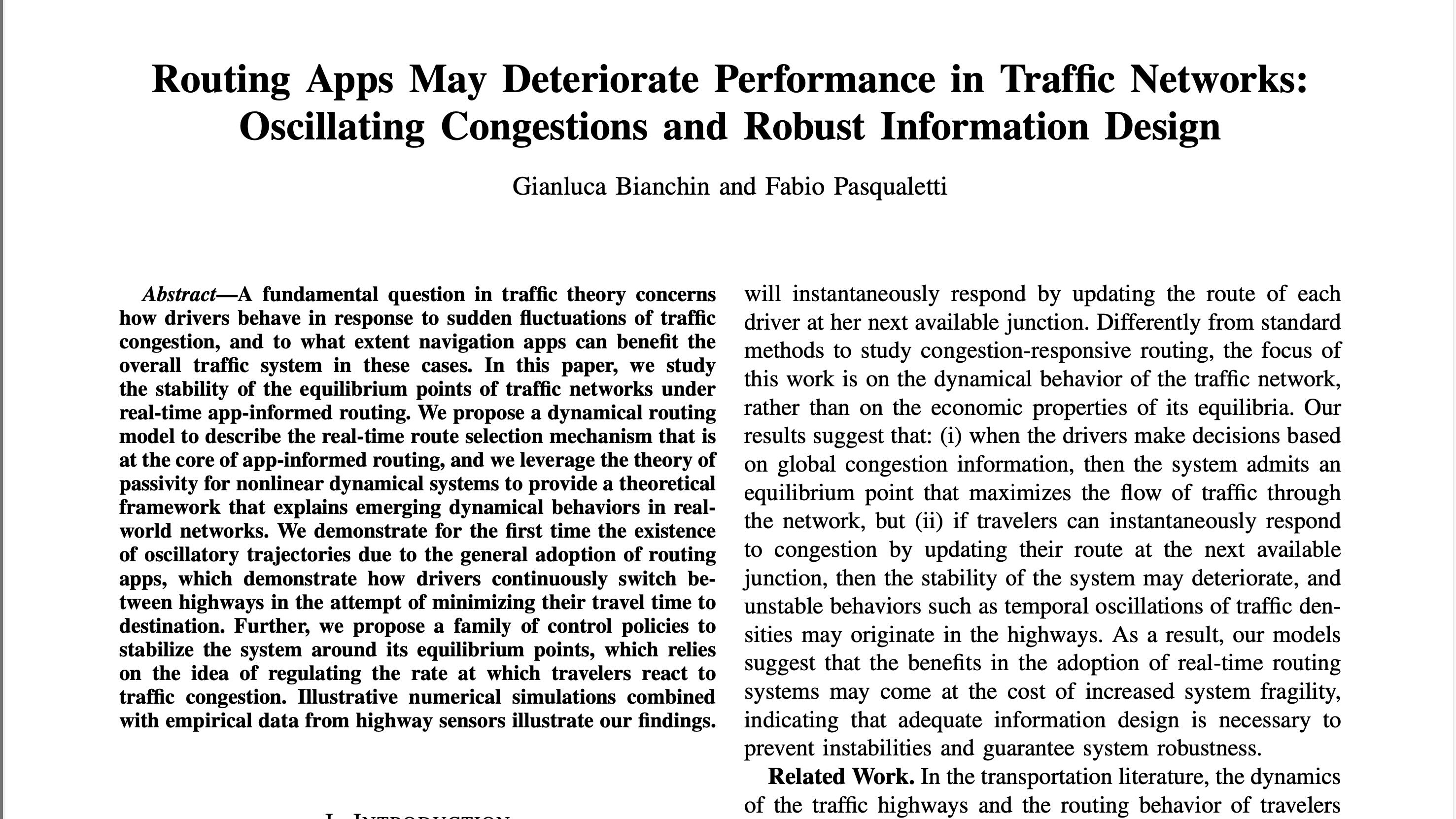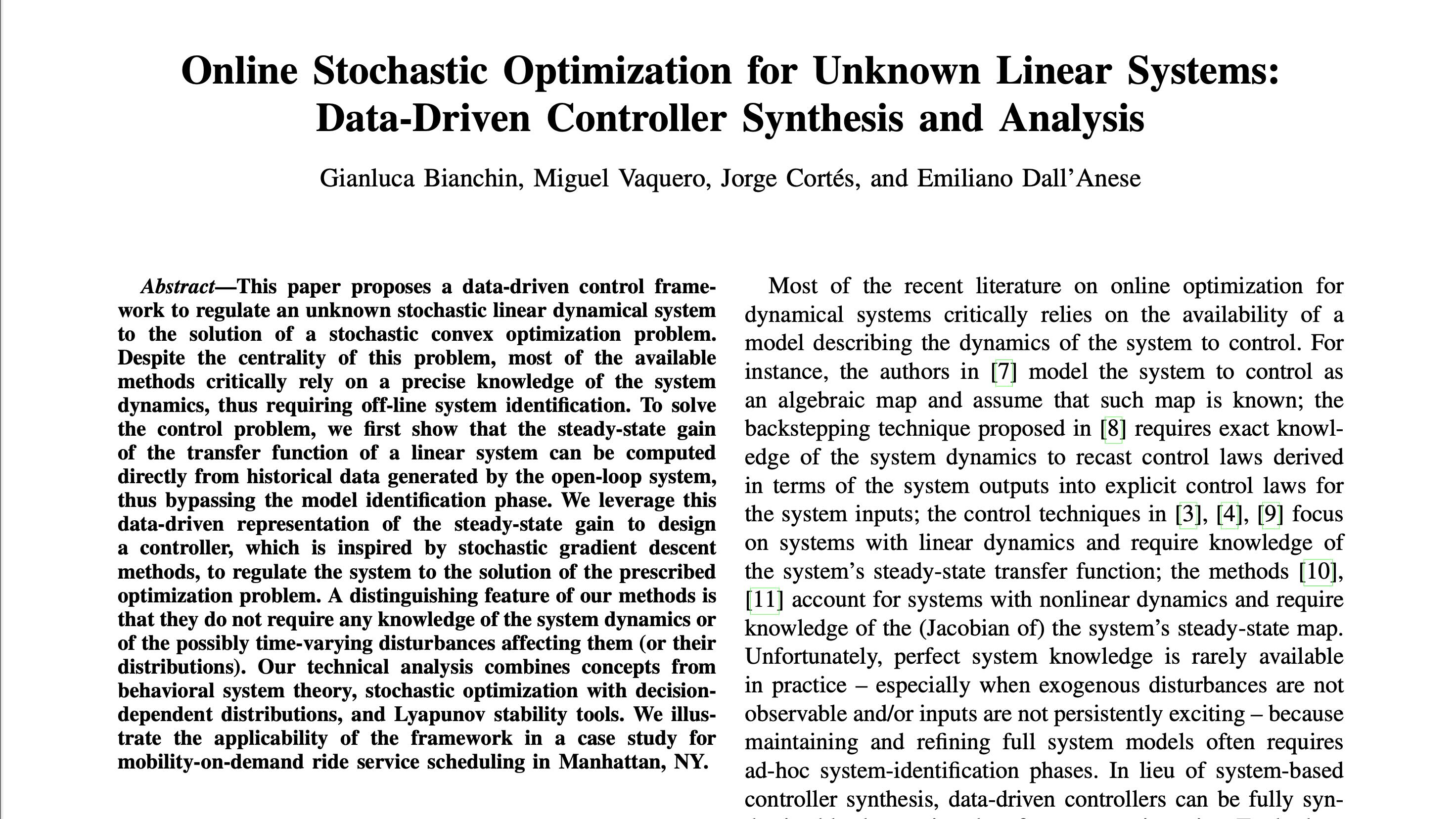Gianluca Bianchin

Gianluca Bianchin
Assistant Professor
Investigator of the WEL Research Institute
Department of Mathematical Engineering (INMA)
ICTEAM institute /
Louvain School of Engineering (EPL)
University of Louvain (UCLouvain)
Email: gianluca(dot)bianchin(at)uclouvain(dot)be
Several PhD and Postdoc positions are currently open in my group in the broad areas of data-driven control, optimization algorithms for control, and applications to transportation systems. Please see this opening for PhDs and this opening for Posdocs. A strong mathematical background is required.
Short bio
I am an Assistant Professor in the ICTEAM Institute at the University of Louvain. Previously, I was a Postdoctoral Scholar in the Department of Electrical, Computer, and Energy Engineering at the University of Colorado Boulder. I completed the Ph.D. degree in Mechanical Engineering at the University of California Riverside in 2020. Before joining UC Riverside, I received the M.Sc. degree in Controls Engineering the B.Sc. degree in Information Engineering both from the University of Padua in 2014 and 2012, respectively. I also spent time as a visiting researcher at the Bosch Research and Technology Center North America and at the Pacific Northwest National Laboratory.
Research interests
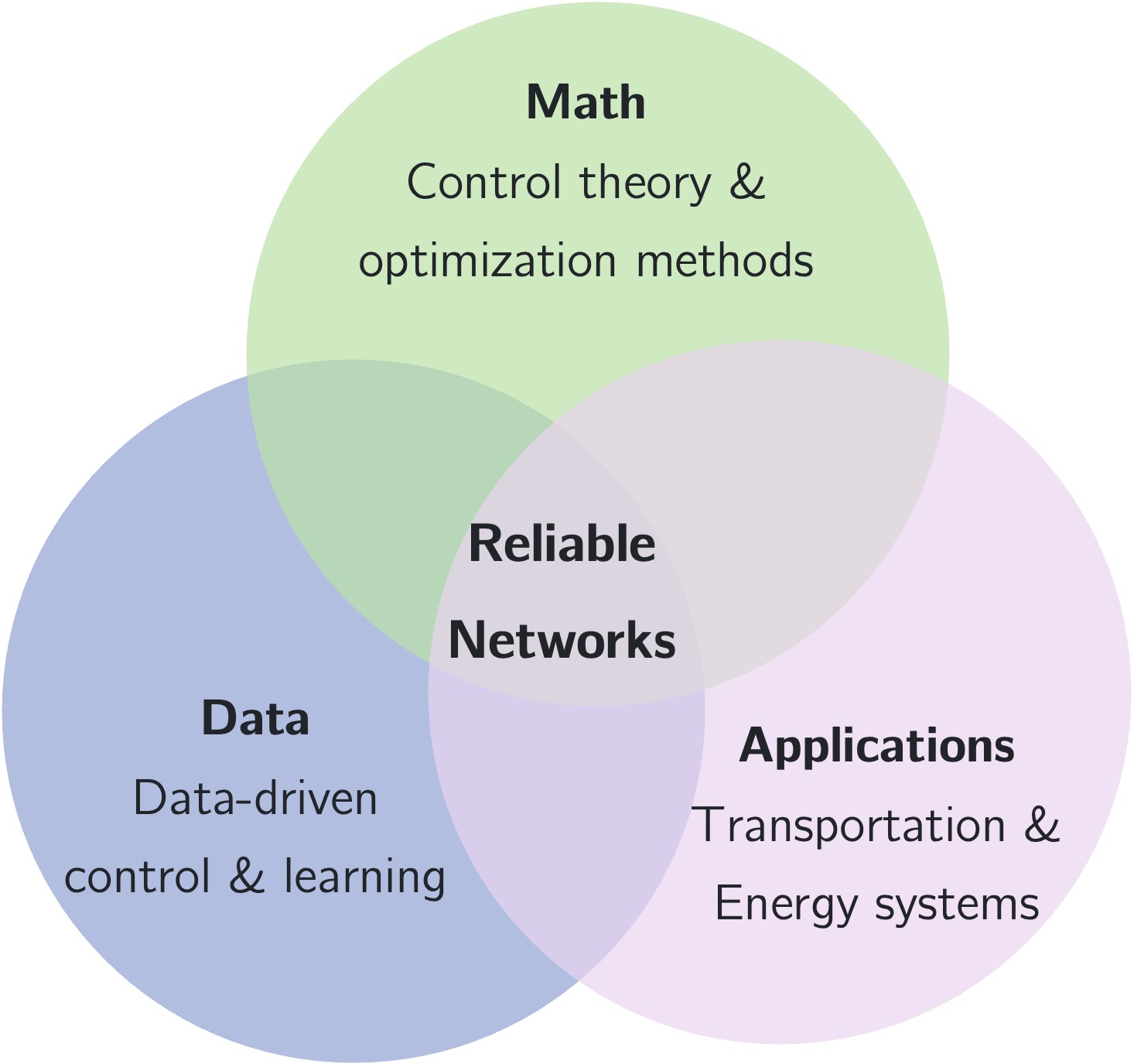
My main research interests are in the modeling, control, and analysis of societal-scale network systems, with an application focus on transportation and energy systems.
Topics of current interest:
Use of optimization algorithms for the control of dynamical systems
Control of Mobility-on-Demand systems and transportation networks
Security in cyber-physical systems
Articles in the spotlight
Recent news and earlier highlights
[Jan 26] In our recent paper “The Role of Network Connectivity in Distributed \(k\)-Agreement Protocols,” just published in Automatica, we introduce a novel coordination algorithm that enables groups of agents to parallelize computation and achieve coordination under minimal communication requirements.
[Dec 25] Two New Grants! We received two FRIA grants to support research in learning-based control and human motor control.
[July 25] New Grant! I was awarded the competitive WEL-T Investigator Programme Grant, from the WEL Research Institute, to support a project on real-time optimization for shared green transportation. I can't wait to kick off this exciting research project!
[May 25] I presented our recent work on internal models for time-varying optimization at the 2025 Dynamics, Optimization and Control Workshop at the University of Groningen. Many thanks to Juan Peypouquet for the invitation and great organization!
[May 25] In the months of May and June 2025, I will be visiting Digital Futures and the Division of Decision and Control Systems at KTH Royal Institute of Technology. I look forward to doing some exciting research with my host, Giuseppe Belgioioso!
[May 25] I will present our recent works on “Optimization for Highly Dynamic Transportation Systems via the Internal Model Principle” at the KTH DCS and Digital Futures Seminar
[Apr 25] I will present our recent work on ‘‘Decision-making for dynamic transportation’’ at the seminar of the Brussels Institute for Advanced Studies (BrIAS). Check out this video recording of the presentation
[Mar 25] Two of my students will present our recent works at the Benelux Meeting on Systems and Control 2025
[Jan 25] In our latest work Optimization of Linear Multi-Agent Dynamical Systems via Feedback Distributed Gradient Descent Methods, we show how Distributed Gradient Descent can be adapted to solve feedback optimization problems! The work will be presented at ACC 2025
[Aug 24] In our recent paper The Internal Model Principle of Time-Varying Optimization, we found that time-varying optimization problems can be recast as output regulation problems from control theory, and that an optimization algorithm can track an optimal trajectory if and only if it contains a model of the temporal variability of the problem. Exciting finding!
[July 24] I am excited to present our recent work Cycle families and Resilience of Dynamical Networks at ACC 2024, where we show that in dynamical networks, edges that appear in some cycle of the graph are more vulnerable than others!
[July 24] I am co-organizing a graduate summer course on ‘Structure Learning in Critical Infrastructure Network,’ offered by Prof. R. Anguluri
[May 24] New Grant! I am excited to receive the prestigious FSR ARC Award, for the project SIDDARTA, jointly with Raphaël Jungers, Julien M. Hendrickx, and Jean-Charles Delvenne. Check the project's lates news on the official SIDDARTA page!
[Dec 23] I am honored to receive the IEEE Transactions on Control of Network Systems Best Paper Award for the paper Time-Varying Optimization of LTI Systems Via Projected Primal-Dual Gradient Flows. The award recognizes outstanding papers published in the IEEE Transactions on Control of Network Systems. Please see this post
[May 23] I co-organized a workshop Online Optimization for Data-Driven Control at the 2023 American Control Conference in San Diego, in collaboration with Emiliano Dall'Anese, Jorge Cortes, and Miguel Vaquero.
[Mar 23] In our recent paper “Data-Driven Exact Pole Placement for Linear Systems” we show that the closed-loop poles of a linear system can be placed exactly at arbitrary locations without relying on any model description but by using only finite-length trajectories generated by the open-loop system!
[Oct 22] I am excited to annnounce that I have joined as an Assistant Professor the ICTEAM Institute and Department of Mathematical Engineering at UCLouvain!
[Sept 22] My interview for the CU Boulder College of Engineering is a great summary of two amazing years spent at CU and a farewell to the beautiful Boulder, CO
[Aug 22] In our recent paper “k-Dimensional Agreement in Multiagent Systems” we study how a group of distributed agents can compute k independent weighted means of a common vector by running a single distributed algorithm. We hope this algorithm will be utilized in distributed computing problems where agents are interested in evaluating k independent functions at a common point!
[Jun 22] I presented our paper “Online Projected Gradient Descent for Stochastic Optimization with Decision-Dependent Distributions” at the 2022 American Control Conference in Atlanta, GA
[Mar 22] Our recent work “Online Optimization of Dynamical Systems With Deep Learning Perception” shows that a combination of neural networks and online optimization techniques can be used to control dynamical systems
[Mar 22] When can we safely return to normal from the COVID-19 pandemic? At the beginning of 2021, our work on Scientific Reports predicted that a return to normal would not have been safe until the early months of 2022
[Dec 21] Our paper “On matrix-SIR Arino models with linear birth rate, loss of immunity, disease and vaccination fatalities, and their approximations” characterizes emerging behaviors of epidemics with non-negligible death rates
[Dec 21] Our paper “Data-Driven Synthesis of Optimization-Based Controllers for Regulation of Unknown Linear Systems” will be presented at the 2021 IEEE Conf. on Decision and Control
[Sep 21] Our paper “Time-Varying Optimization of LTI Systems via Projected Primal-Dual Gradient Flows” was published in the IEEE TCNS
[Aug 21] Our paper “Online Stochastic Optimization for Unknown Linear Systems: Data-Driven Synthesis and Controller Analysis” is available on ArXiv
[Feb 21] Our paper “Online Optimization of LTI Systems Under Persistent Attacks: Stability, Tracking, and Robustness” is available on ArXiv
[Dec 20] New grant! We received the AB Nexus seed grant to investigate the development of control policies for epidemics
[Dec 20] I presented our paper “Routing Apps May Cause Oscillatory Congestions in Traffic Networks” at the 2020 IEEE Conf. on Decision and Control
[Aug 20] Our paper “Online Optimization of Switched LTI Systems Using Continuous-Time and Hybrid Accelerated Gradient Flows” is available on ArXiv
[Mar 20] Our paper “Navigation Systems May Deteriorate Stability in Traffic Networks” is available on ArXiv
